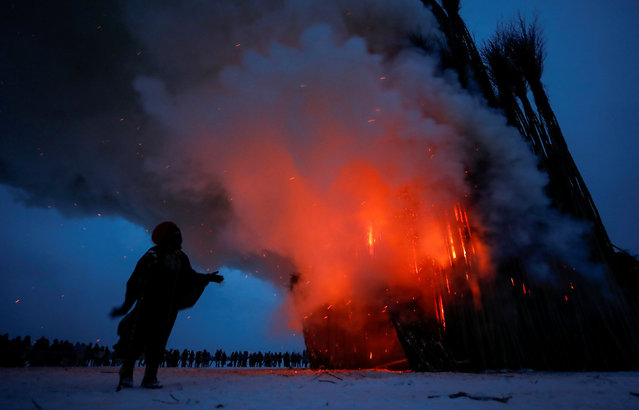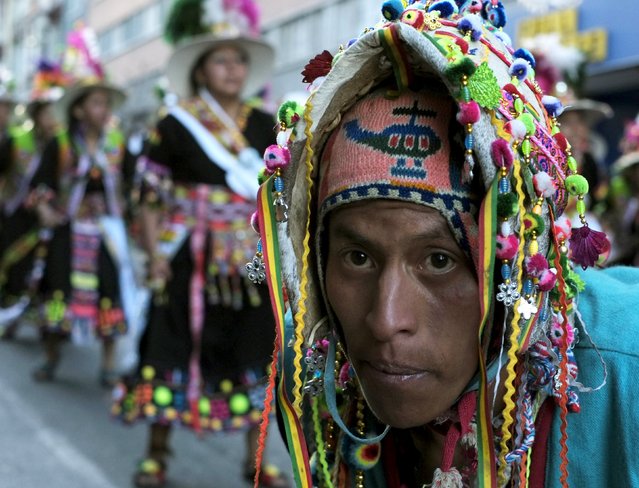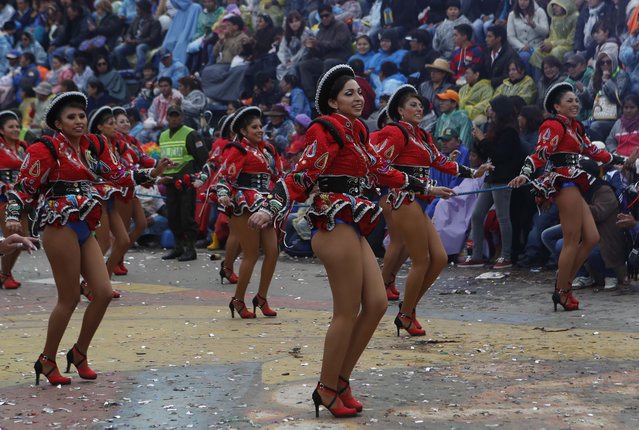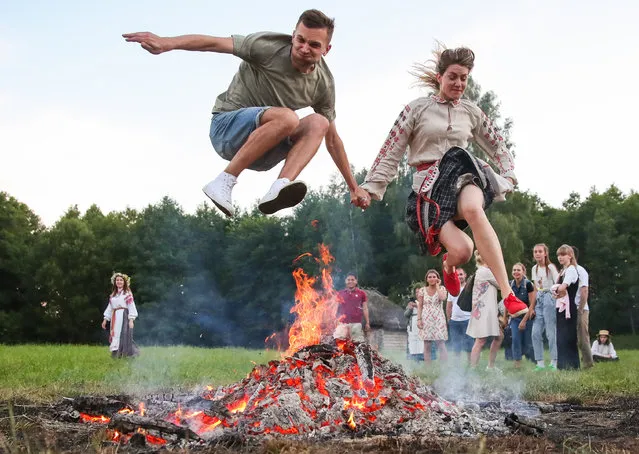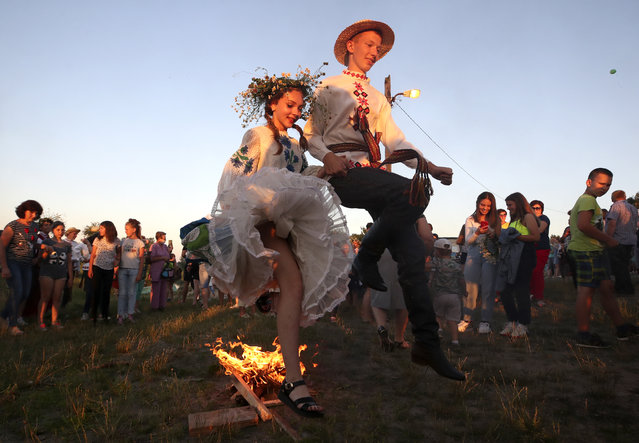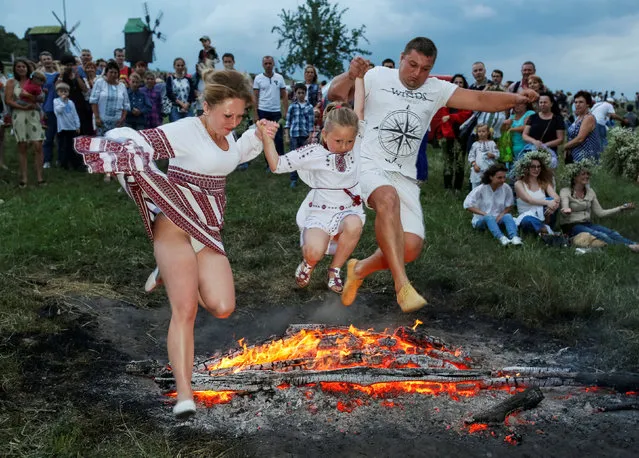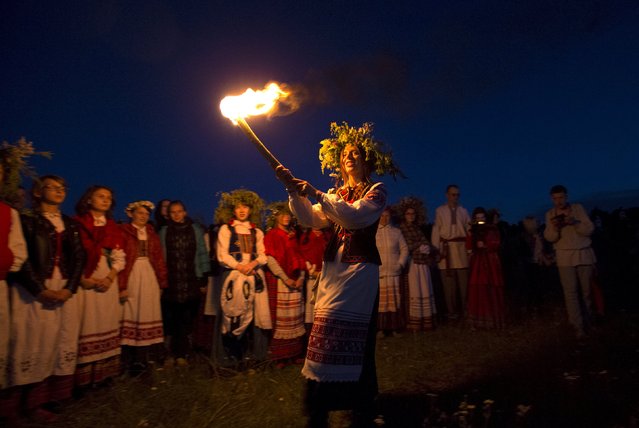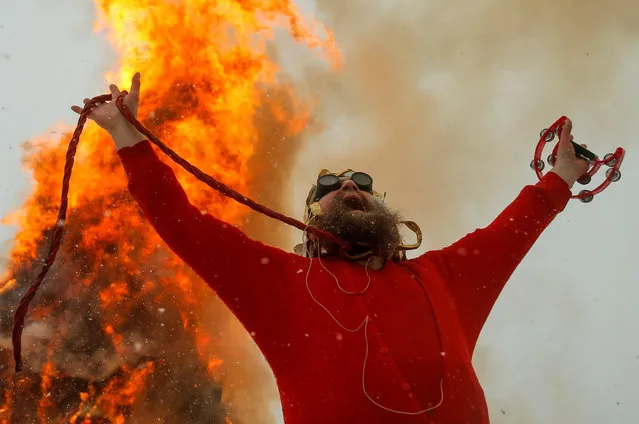
Artist German Vinogradov acts in the performance of the burning of Maslenitsa tower, devoted to Pancake Week, a pagan holiday marking the end of winter, in the village of Nikola-Lenivets, Kaluga region, Russia, February 25, 2017. (Photo by Maxim Shemetov/Reuters)
27 Feb 2017 00:04:00,post received
0 comments

